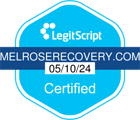How To Get a Loved One Into Rehab
Recognizing the need for rehab is the first step in helping them on their journey to recovery. There are various ways to get a loved one into rehab, convince them to go, discuss the importance of professional help, and how to offer guidance and support them throughout the process. But it all starts with conveying how much you care and want them to be happier and healthier.
Recognizing signs of addiction is crucial in understanding the need for rehab. But it’s not always easy to spot the signs. Sometimes, they can be subtle, hiding beneath the surface of everyday life. For example, a person struggling with alcohol addiction may start drinking earlier in the day or hiding their bottles in unusual places. Someone addicted to gambling may become secretive about their financial situation, constantly borrowing money or pawning off personal belongings.
It’s essential to approach the subject of rehab with empathy and understanding. Addiction is a complex issue, and your loved one may have a sense of shame or denial. The goal is to communicate your concerns effectively and motivate them to seek professional help.
Recognizing Signs of Addiction in Your Loved One
Signs of addiction can vary depending on the substance or behavior involved. Some common signs include:
- Increased tolerance
- Withdrawal symptoms
- Neglecting responsibilities or obligations
- Loss of interest in previously enjoyed activities
Observing these signs can help you determine if your loved one needs rehab. However, it’s important to remember that addiction is a complex issue, and not everyone will exhibit all of these signs.
The Importance of Professional Help
While you may want to help your loved one on your own, it is crucial to involve professionals in the process. A qualified addiction specialist or therapist can provide the necessary expertise and guidance. They can evaluate the severity of the addiction, address co-occuring mental health conditions, recommend suitable treatment options, and help you navigate the challenges that may arise.
Professional help not only ensures a safe and effective recovery but also provides a supportive environment for your loved one to address the underlying issues contributing to their addiction. Through therapy sessions, group support, and evidence-based treatments, they can gain the tools and skills needed to overcome their addiction and build a healthier, more fulfilling life.
Remember, addiction is a journey and recovery is a process. It requires patience, understanding, and a commitment to supporting your loved one every step of the way. By recognizing the signs of addiction and seeking professional help, you are taking an important first step toward their recovery and well-being.


Discussing Rehab with Your Loved One
Approaching the topic of rehab requires careful consideration. Timing and effective communication are key factors in encouraging your loved one to take the necessary steps toward treatment.
Rehabilitation is a crucial step toward recovery for individuals struggling with addiction. It offers a structured environment where they can address their substance abuse issues and learn coping mechanisms to lead a healthier, more fulfilling life. By discussing rehab with your loved one, you are showing your support and commitment to their well-being.
Selecting the right time to discuss rehab is crucial for a productive conversation. It’s important to choose a time when your loved one is attentive and not under the influence of drugs or alcohol. Opt for a calm and private setting where they feel comfortable sharing their thoughts and concerns.
Timing is key when broaching this sensitive topic. Consider waiting for a moment when your loved one is relatively stable and not in a heightened emotional state. This can help facilitate a more open and constructive dialogue about the benefits of seeking professional help through rehab.
Try to avoid confrontational or accusatory language. Instead, express your genuine care and concern for their well-being. Let them know that you are there to support them and that rehab can help them regain control and live a healthier life.
When discussing rehab, it’s important to communicate your concerns effectively. Be honest but non-judgmental in your approach. Let your loved one know the specific behaviors or changes you have noticed and how they have affected you and others around them.
Effective communication is essential in conveying your support and understanding. By sharing your observations and feelings in a compassionate manner, you can help your loved one realize the impact of their actions on themselves and those they care about. This paves the way for a more meaningful discussion about the positive outcomes that rehab can bring to their life.
Encourage open and honest communication by actively listening to their perspective and validating their feelings. Avoid making ultimatums or threats, as these can often be counterproductive. Instead, emphasize your willingness to support them throughout their recovery journey.
Exploring Different Rehab Options
Once your loved one agrees to seek professional help, it’s important to explore different rehab options together. Understanding the various treatment programs available can help them make an informed decision based on their specific needs.
Embarking on the journey to recovery involves careful consideration of the multitude of rehab options tailored to address individual struggles with addiction. By delving into the specifics of each program, individuals can gain insight into the diverse approaches available to support their path to sobriety.
Inpatient and outpatient rehab programs offer different levels of care and support. Inpatient rehab involves residing at a treatment facility for a specific duration, allowing for intensive therapy and 24/7 support. Outpatient rehab, on the other hand, allows individuals to continue living at home while attending therapy sessions regularly.
When weighing the decision between inpatient and outpatient rehab, it’s crucial to consider the individual’s daily responsibilities and personal preferences. Inpatient programs provide a structured environment conducive to focused recovery, while outpatient programs offer flexibility for those who need to balance treatment with work or family commitments. The choice also depends on various factors, including the severity of the addiction, the presence of any co-occurring mental health disorders, and the support system available.
Depending on the substance or behavior involved, specialized treatment programs may be available. These programs cater to the unique needs of individuals struggling with specific addictions, such as alcohol, opioids, or gambling.
Specialized treatment programs tailored to address specific addictions can provide individuals with targeted support essential for overcoming challenges. By immersing themselves in programs designed to address their addiction’s nuances, individuals can enhance their chances of successful recovery and long-term sobriety.
Researching and discussing these specialized programs with your loved one can help them feel more confident in their decision to seek treatment. It’s important to consider factors such as the program’s success rates, approach to individual therapy, and available aftercare services.
Your Transformation Start Here
Preparing for Rehab
As your loved one prepares for rehab, it’s vital to provide emotional support and assist with practical arrangements. Knowing what to expect during their time in rehab can help ease anxiety and make the transition smoother.
Rehab involves a structured program of therapy, counseling, and support aimed at addressing the physical, emotional, and psychological aspects of addiction. It is important to explain to your loved one that rehab is a safe and confidential environment where they can focus on their recovery.
Assure them that they will not be alone in their journey and that their well-being is a top priority. Inform them about the daily routine, therapy types, and available support services. Offer help with coordinating house management, child care, or any other services they may need to arrange while away. They may need continued support with this as they complete post-rehab aftercare programs.
It’s not uncommon for individuals struggling with addiction to resist the idea of rehab. They may have fears or concerns about the unknown, fear of judgment, or a reluctance to let go of their habits.
If your loved one is resistant to rehab, remind them of the negative consequences their addiction has had on their life and relationships. Encourage them to visualize a healthier, happier future and highlight the benefits of seeking professional help.
Supporting Your Loved One During Rehab
Supporting your loved one during their time in rehab is crucial for their recovery. While they are away, providing encouragement will help them stay motivated and connected to their support system.
Rehab programs have different policies regarding communication, so it’s important to respect their rules while finding ways to stay in touch. Sending letters, care packages, or scheduling approved phone calls can provide a sense of connection and support.
Express your continued support and remind your loved one that they are not alone in their journey. Sharing positive updates, encouraging words, and reminding them of their goals can sustain their motivation.
After completing a rehab program, the journey towards recovery continues. Encourage your loved one to continue attending therapy sessions, engage in group therapy or support groups, and follow any aftercare recommendations provided by their treatment team.
Offer to accompany them to appointments or help them research nearby support groups. Reinforce the importance of maintaining a healthy lifestyle and engaging in activities that promote sobriety.
Help Your Loved One Today
Getting a loved one into rehab is not an easy process, but it is a necessary step towards recovery. Understanding the need for rehab, effectively discussing it with your loved one, exploring different rehab options, and providing ongoing support are all vital components of the journey. Remember, by seeking professional help and offering your unconditional support, you are giving your loved one the best chance at a healthier, happier future.
At Melrose Recovery, we work to provide individuals with all the tools they need to build healthier lives for themselves. Evidence-based treatment options provide support and insight, while ongoing aftercare supports progress as they re-enter the world. Contact us today to find help for your own healing journey or to learn how you can support your loved one.










